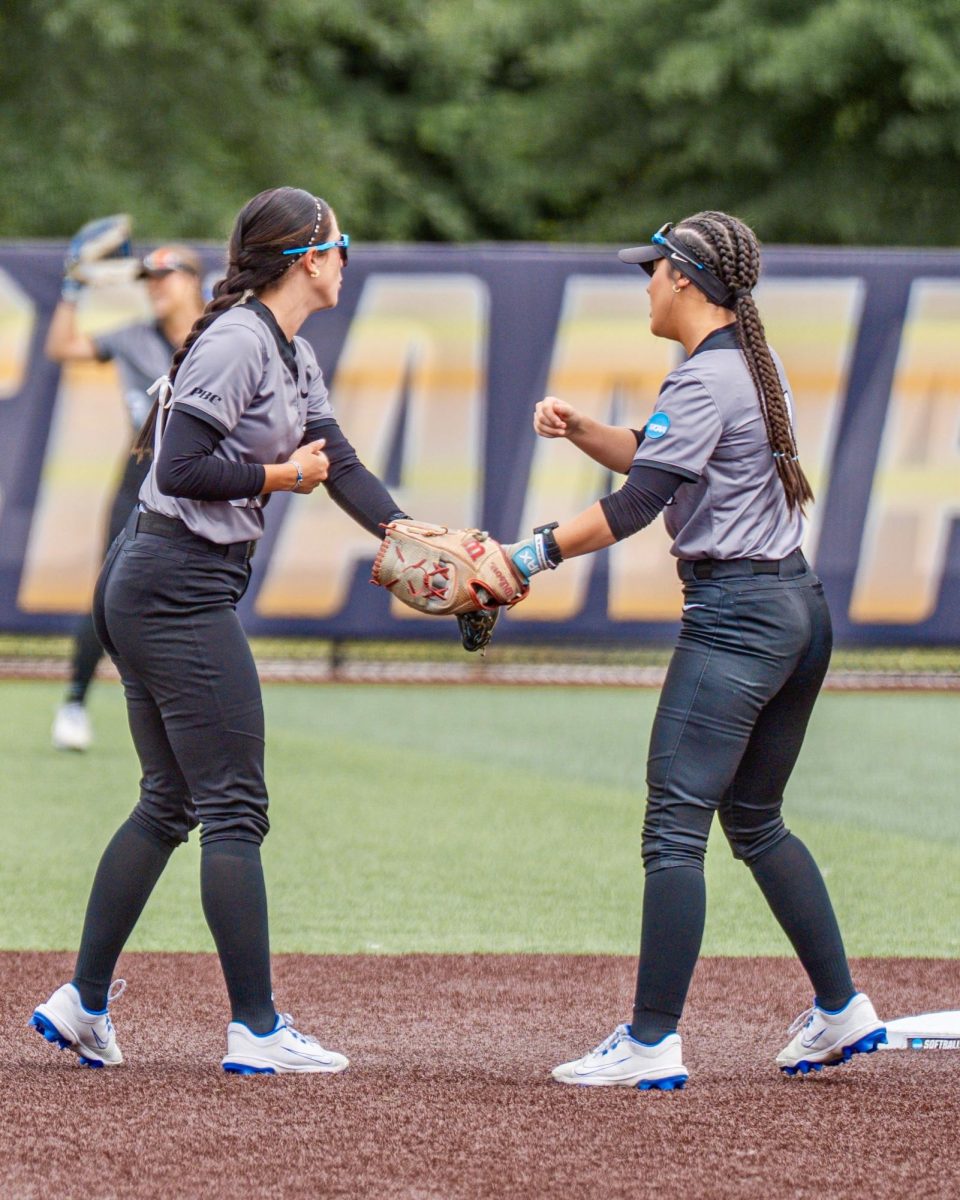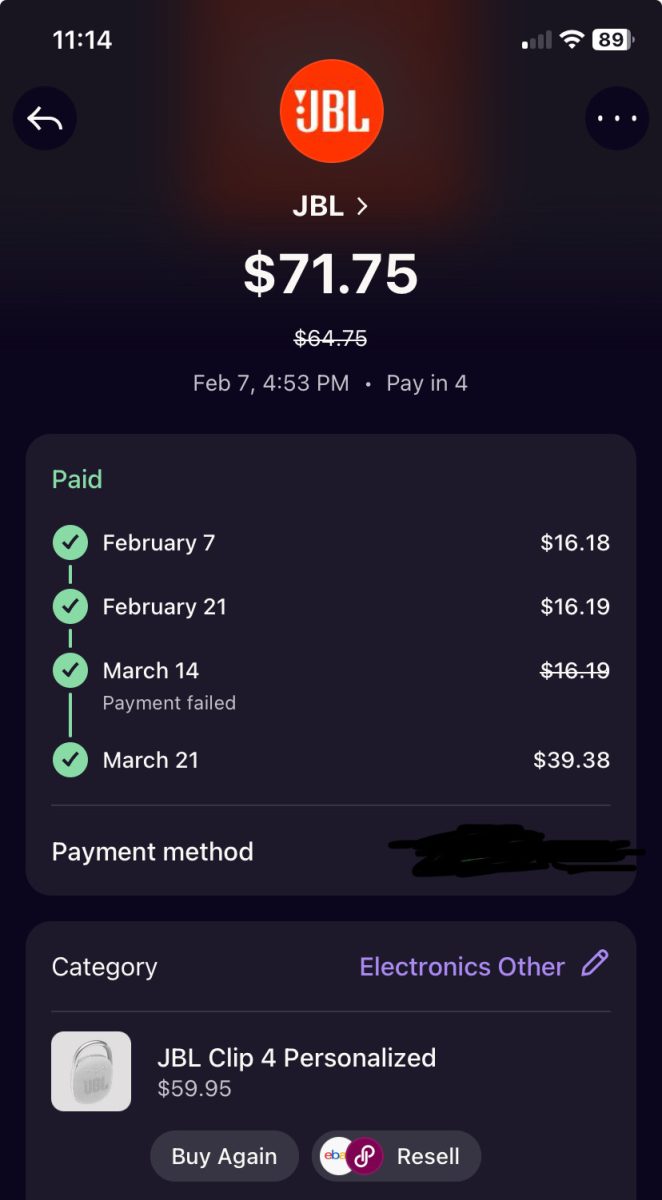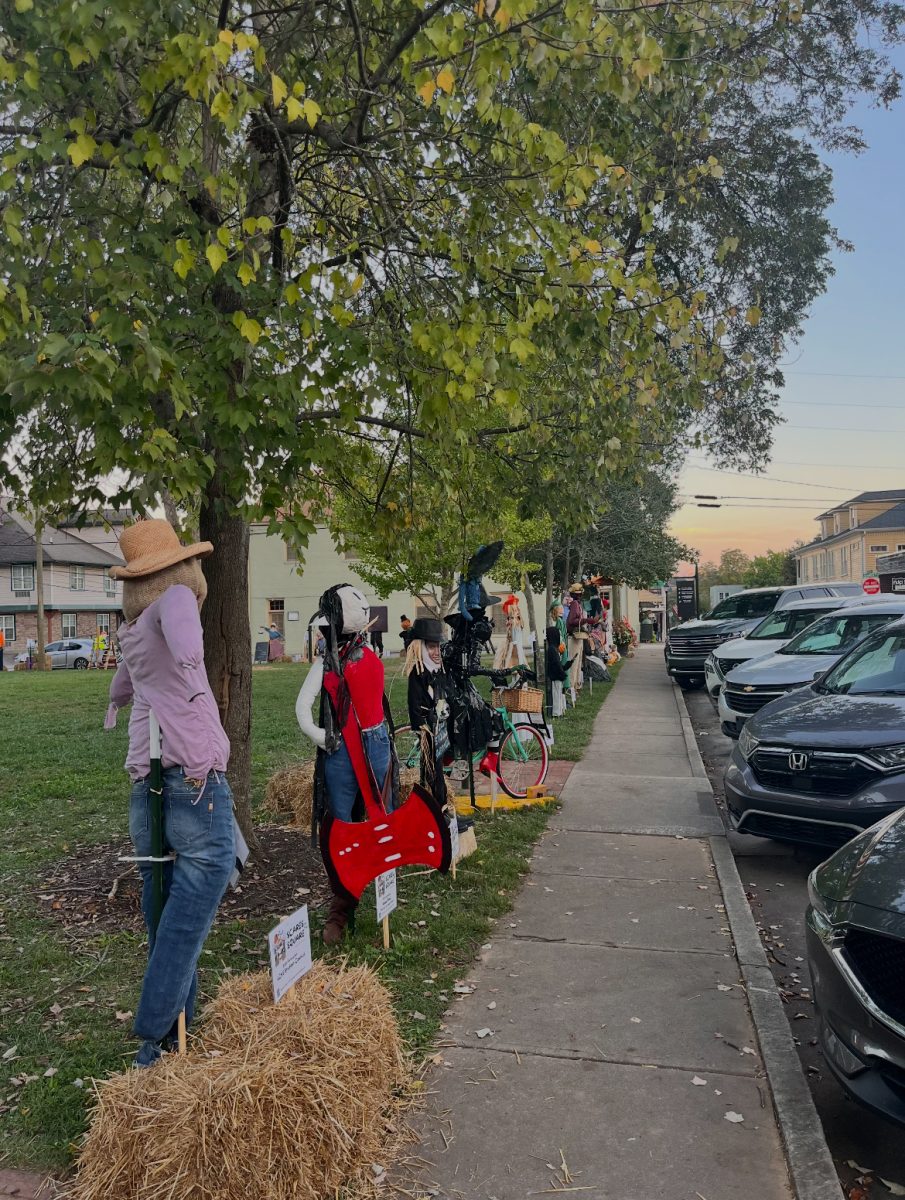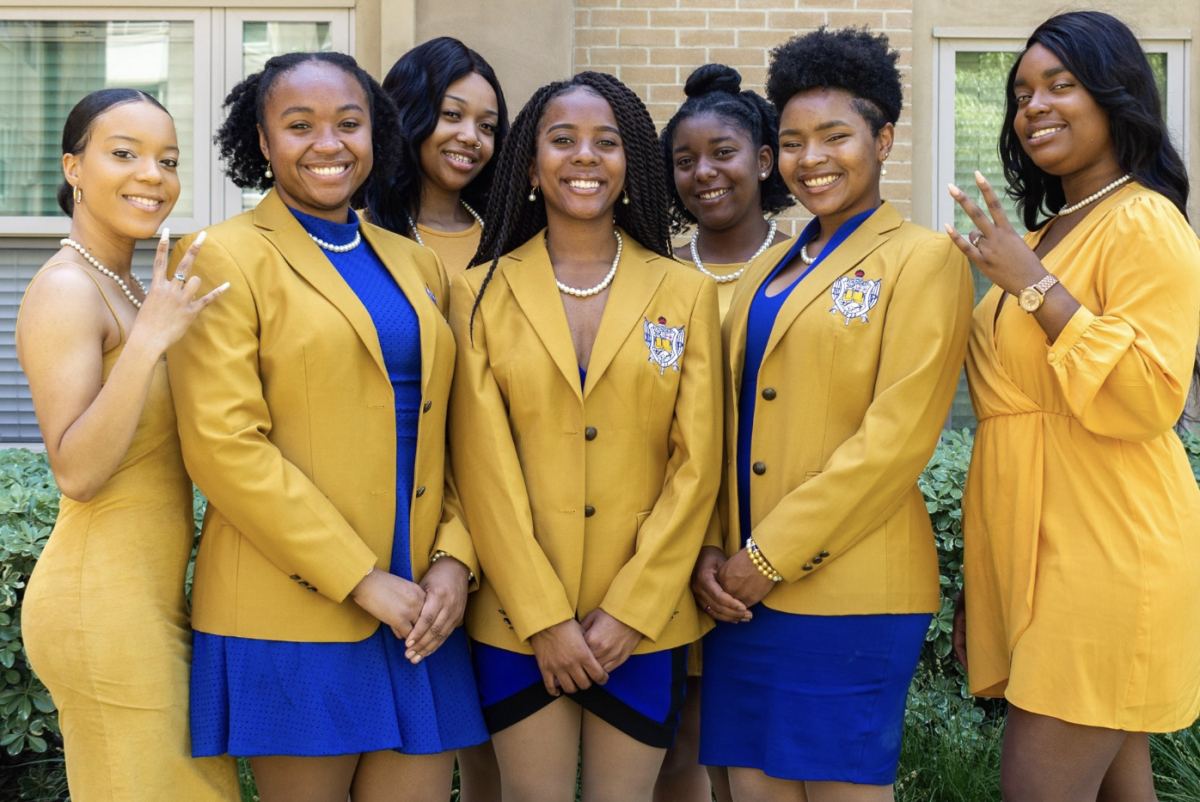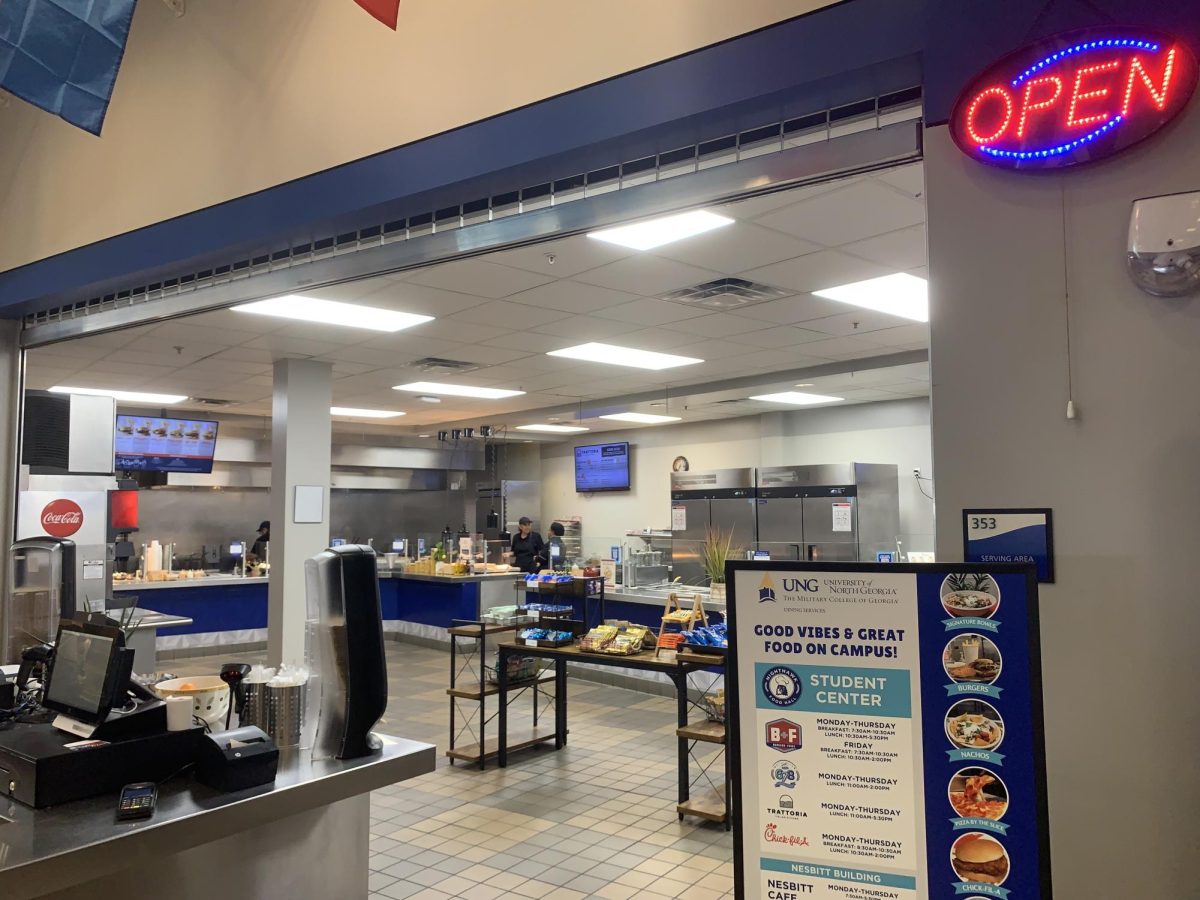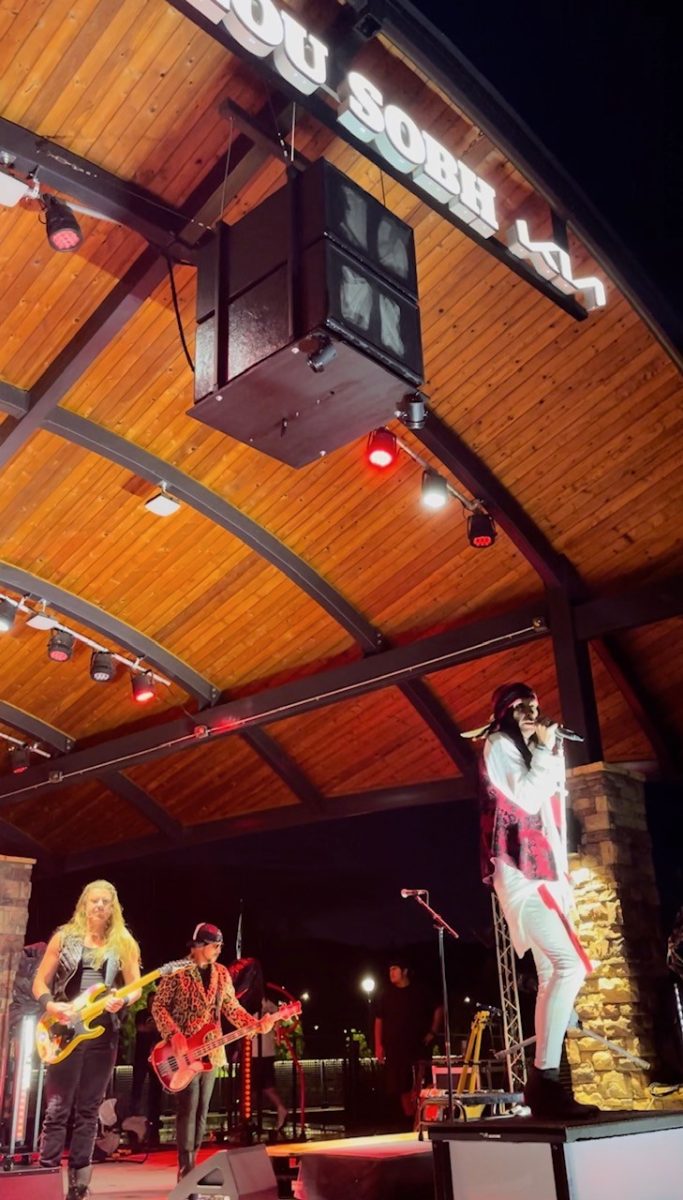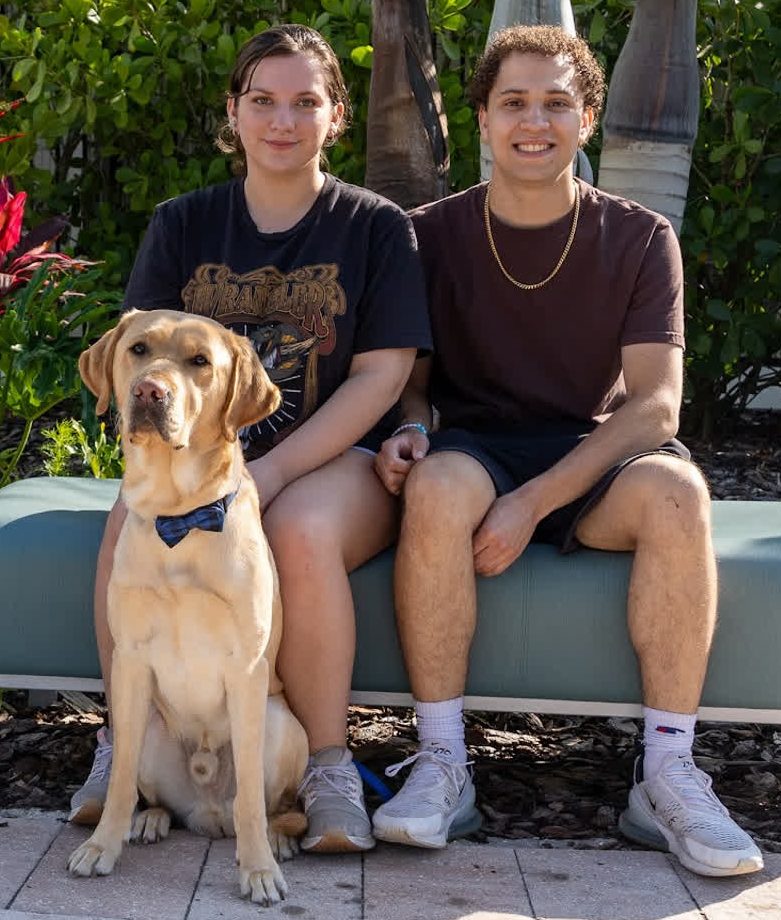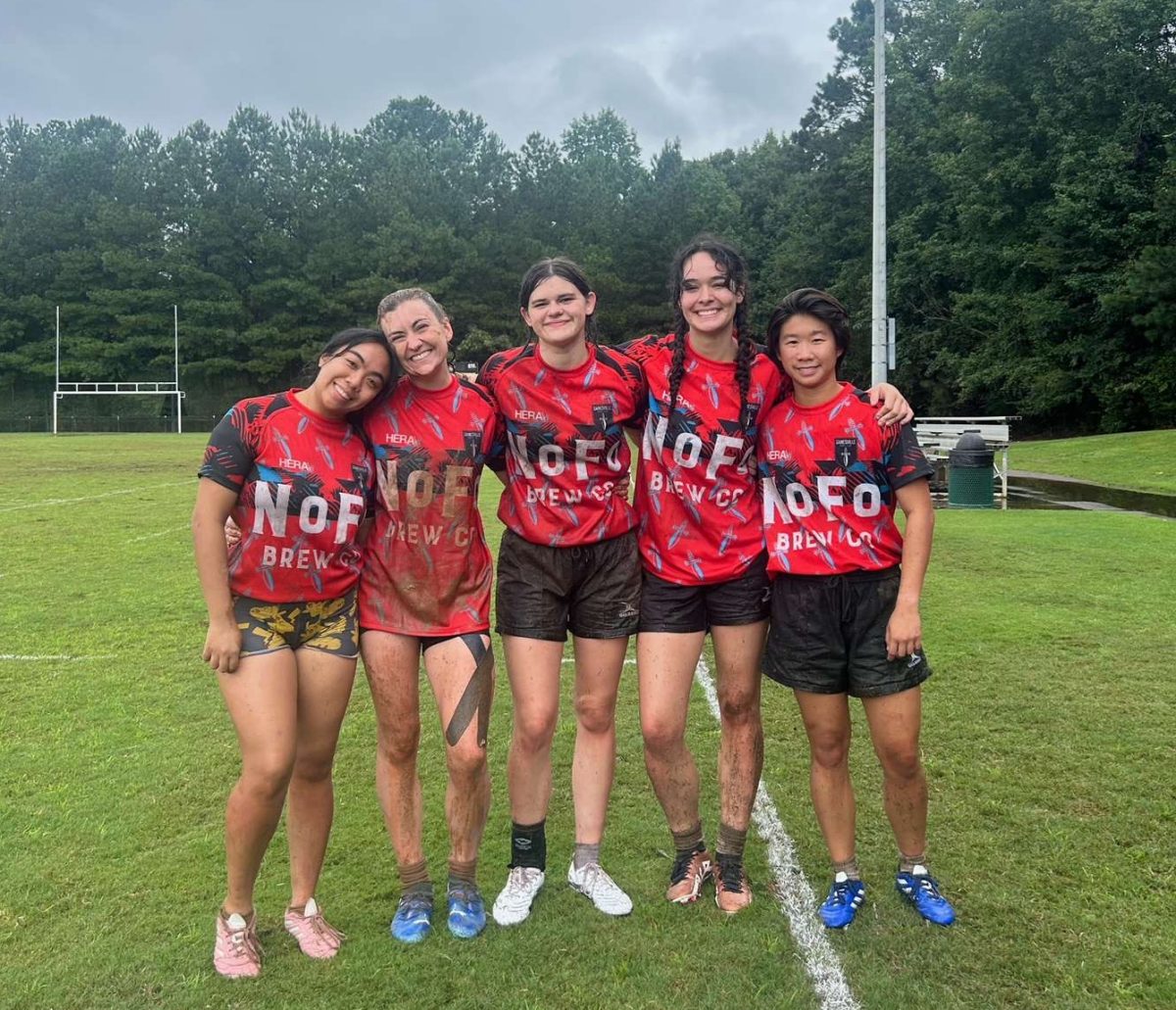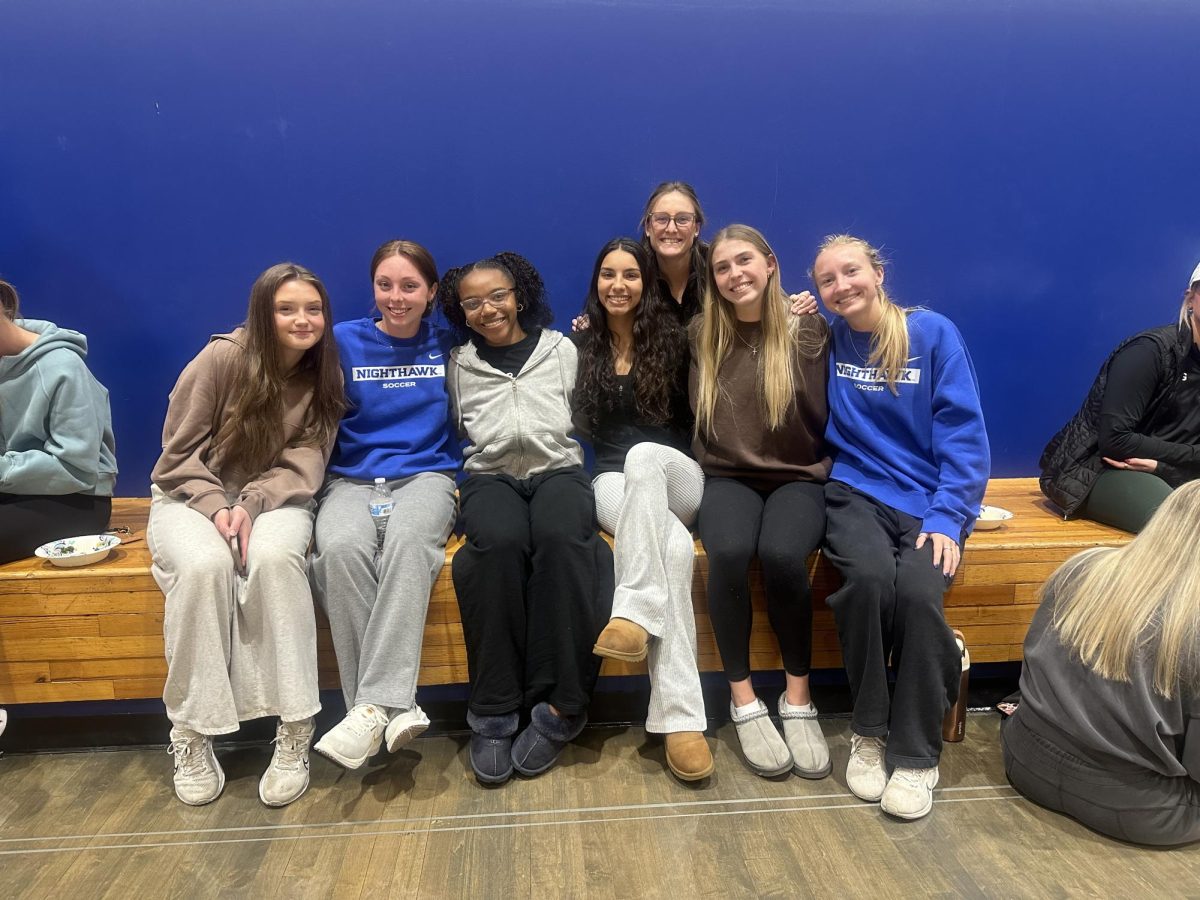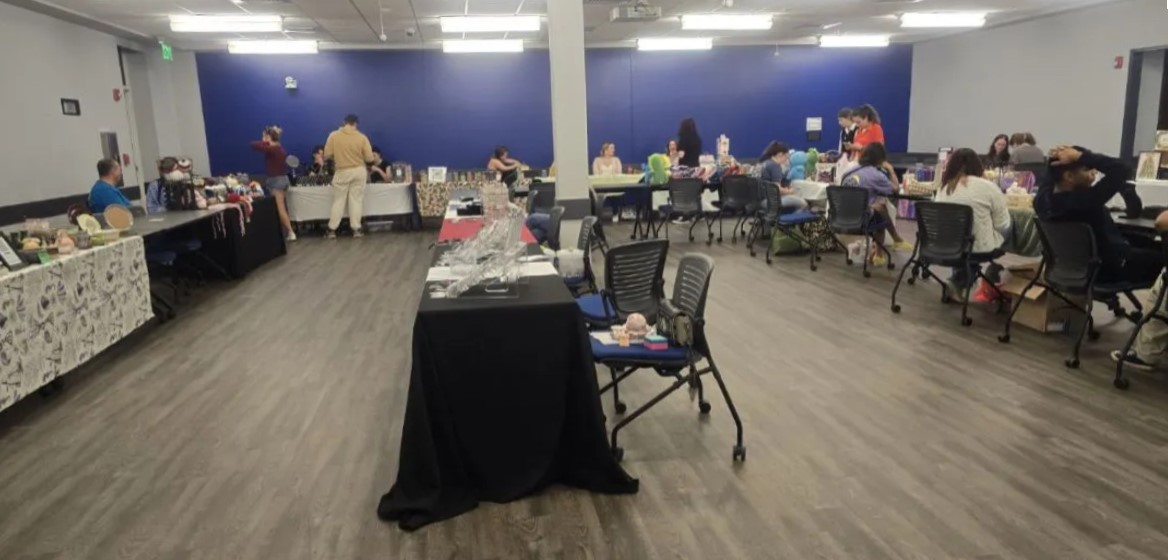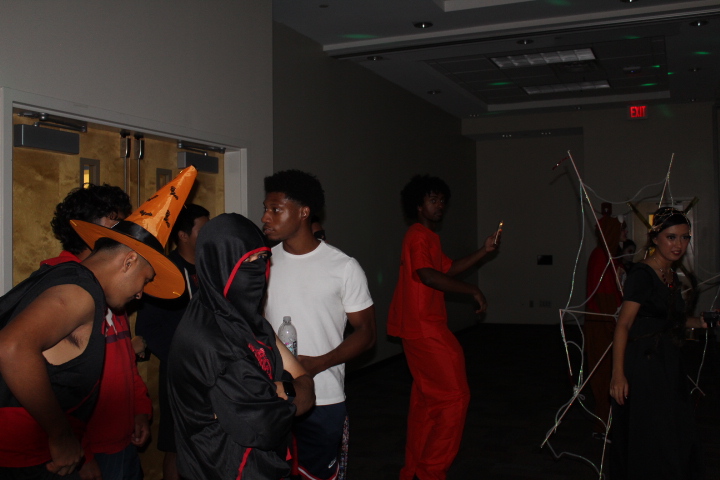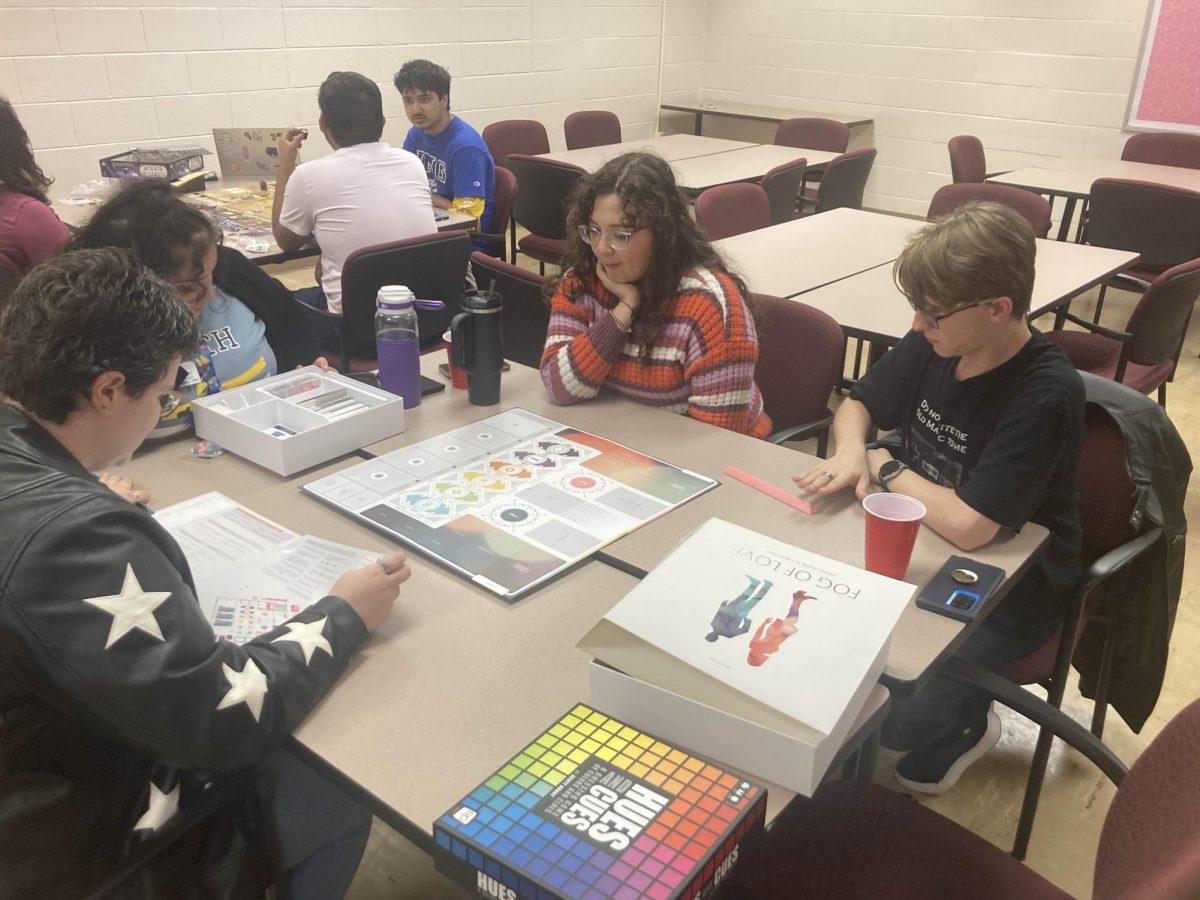This October, North Georgia K-9 Group will welcome new puppies to the University of North Georgia as a part of a student-led program to train future guide, service and detection dogs.
The organization, founded in 2024 by senior kinesiology major Keirsten German, senior biology major Julian Buka, business major graduate Steven Fallon and art major graduate Kayla Northcutt, gives UNG students an opportunity to raise and train Labrador and golden retriever puppies on campus.
The group works alongside DogsInc, a Florida-based nonprofit that provides free service dogs to recipients, to match participating UNG students to an eight to 16-week-old puppy. The puppies stay with their raisers for about a year before returning to Florida for advanced training and eventual career placement, says German.
She explains that their career paths are chosen based on their individual strengths. For instance, a puppy with a keen sense of smell may become an arson detection dog, while a more mellow, observant puppy may become a therapy dog. According to German, most of the puppies raised at UNG will become guide dogs for blind recipients.
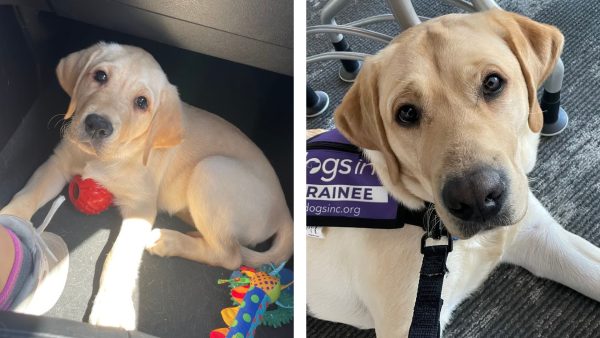
Students interested in raising a puppy must be at least 18 years old, pass a background check, complete an application, attend two virtual training sessions and submit a roommate agreement. The process takes about three weeks and concludes with a housing tour, says German.
When approved, applicants may either travel to Florida to pick up a puppy immediately or wait until another North Georgia K-9 Group member brings a shipment to campus. Once paired with a raiser, German says the puppies have “all the rights of a fully trained service dog,” meaning they can live in any university or off-campus housing, regardless of pet policies.

This year, raisers can collaborate with DogsInc to help name their puppies. As part of a new welcome initiative, they will also receive a free dog toy from North Georgia K-9 Group at the beginning of the raising process, says German.
“I always hated all the names I got for mine,” she explains, hoping the new initiative will entice more students to raise puppies at UNG.

As part of their training, raisers are expected to bring their puppies to class, teach them basic commands and desensitize them to touch and sound.
“Having a puppy in class for the first few days is always a bit rough,” says German. “It’s like a toddler. Ever taken a toddler into a restaurant? They’re cute, but they whine a little bit, and [it’s] a little embarrassing when they cry.”
To assess the puppy’s progress, DogsInc advisors regularly meet with raisers for virtual “Walk and Talk” evaluations, where they offer support and guidance. The nonprofit also covers veterinary care, including recurring flea and tick preventatives, and provides a crate, collar and vest with each puppy.
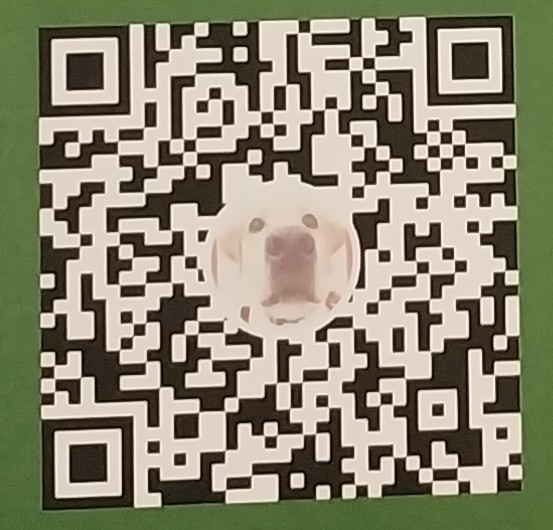
Students are responsible for food and toys, which German estimates to cost about $70 a month. She says many students choose to co-raise to split the cost and responsibilities.
“I kind of went into it knowing that I probably have to pay for those things myself,” said Elizabeth Simmons, a sophomore business management major preparing to raise her first puppy this October. To Simmons, the cause outweighs the cost.
“Initially it… just [sounded] fun to raise a dog on my own,” she says, “and then, as I found out what the dogs go into and what they’re used for, it became more [that] I want to support other people and help them.”
Despite the charitable cause, German, who has raised two dogs through the program, says it’s difficult to give them up at the end of their training.
“Its hard. You fall in love with them,” she says. “You raise them for a year. You get all these cute memories of it being a little puppy, then growing into a teenager that’s a menace to society. And then, finally, once they’re out of the menace phase and they’re great dogs. They settle. They listen to all the cues and commands. They go outside and don’t pull on the leash. And guess what? You give them up and start over with a new one.”
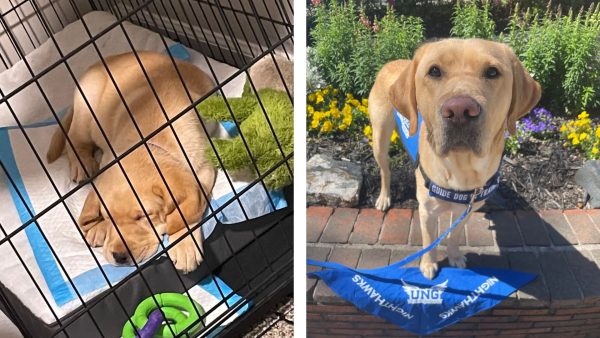
German explains that while raisers do not usually get an opportunity to adopt their dogs out of the program, they can see them one last time through a virtual “Raiser Reunion.” In rare cases, when a dog does not pass its service screening, DogsInc may offer the animal back to its raiser for a free adoption.
“I don’t like telling people that because I feel like they’ll purposefully try to fail the dog,” German says, “and obviously, I do not wish for any of them to fail. I wish them all the best.”







